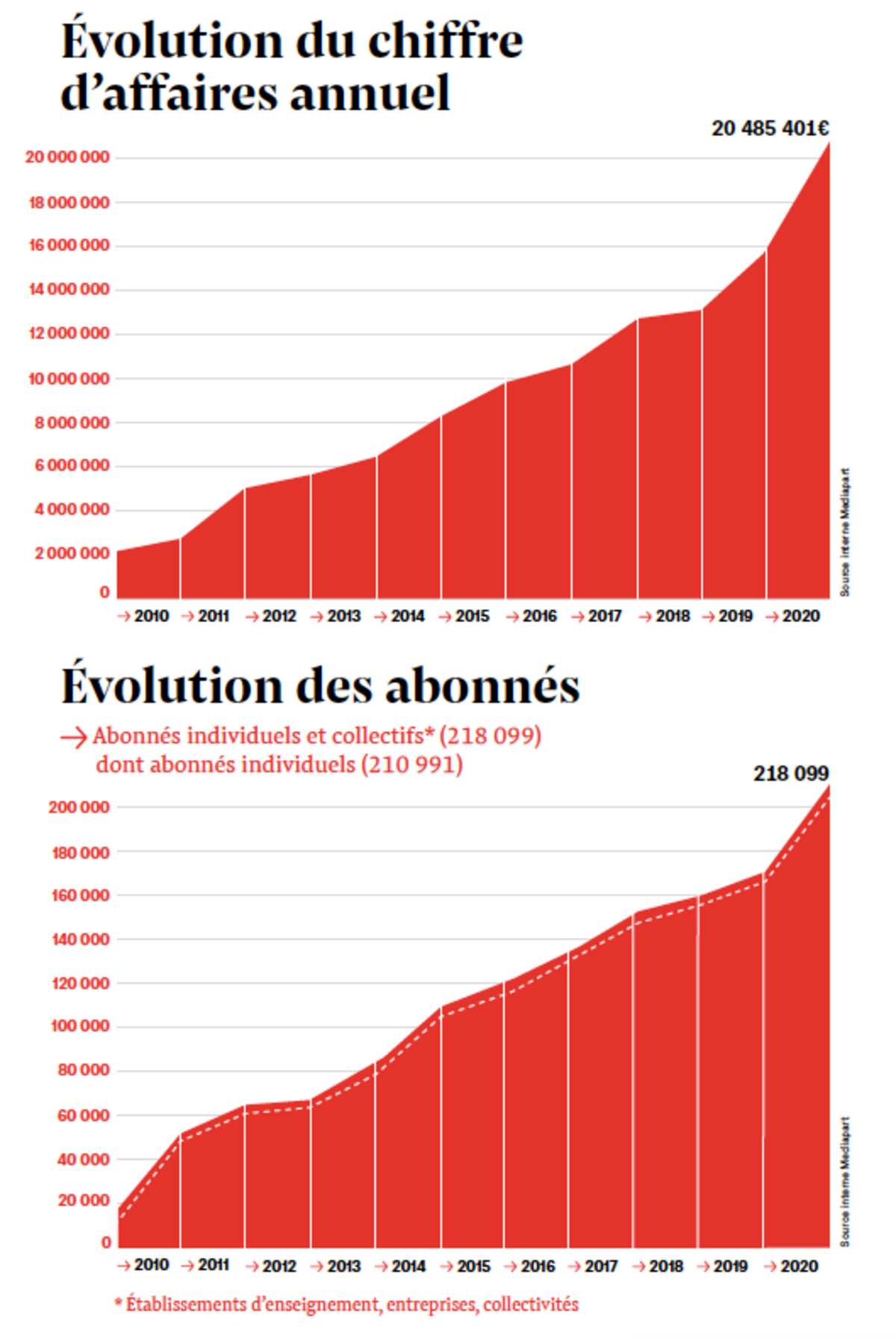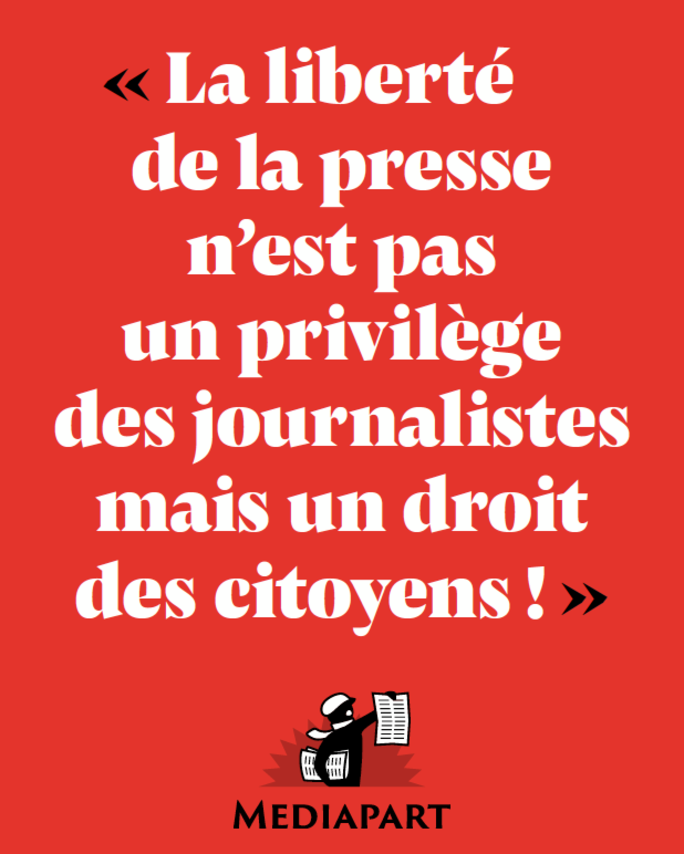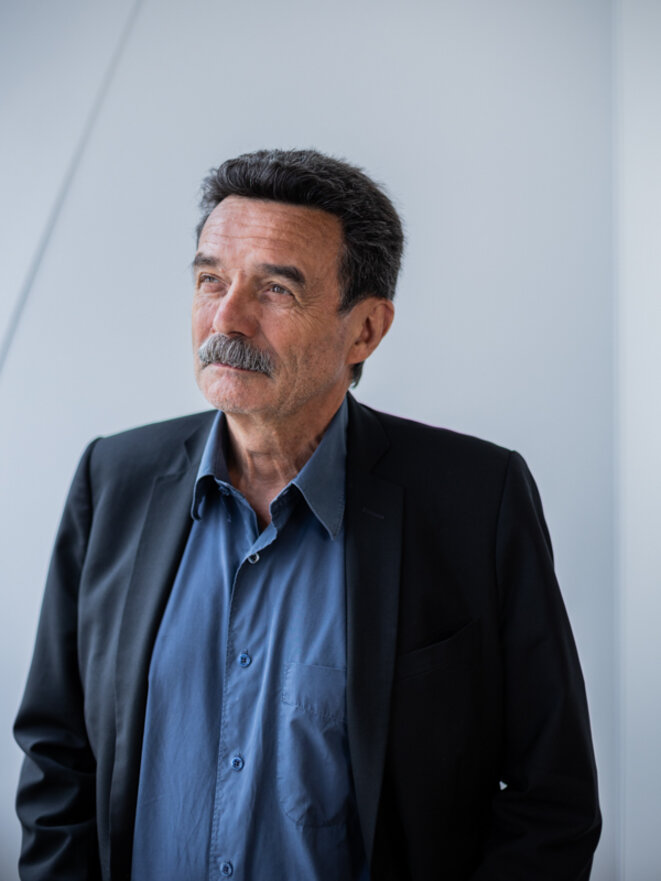On March 16th 2021, the day which marks its 13th anniversary, Mediapart held its yearly press conference. During the event, our general manager, Marie-Hélène Smiéjan, gave a detailed presentation, in figures, of our activities of last year. All the information, with graphics, is available on this dedicated online page (in French).
In brief, the year 2020 was an exceptional one for Mediapart, which saw its strongest annual growth in 13 years of existence. On December 31st 2020, Mediapart had a total of 218,099 paying subscribers, of which 210,991 were individual subscribers – the remainder being collective subscriptions.
With this year-on-year net increase of 48,270 subscribers, our annual turnover rose to more than 20 million euros (more precisely, 20,485,401 euros), which represented a year-on-year increase of 22%. Our current earnings before tax, representing 31% of our turnover, rose year-on-year by 46%, totalling 6,045,514 euros, resulting in net earnings of 4 million euros after tax and staff bonus scheme payments.

Agrandissement : Illustration 1

This performance is explained firstly by the need for independent and thorough news reporting, one which does not succumb to propaganda and lies, in order to understand the unexpected events to which we are confronted. Together with that is the collective mobilisation of our team which stood united amid the adversity of lockdowns, in a display of remarkable solidarity.
This allowed us to innovate, notably with the creation of À l’air libre (‘Out in the open’), our daily, Monday-Thursday video current affairs programme, and also with the arrival of a new, improved mobile app. This mobilisation has also included the recruitment during 2020 of 26 new staff members, bringing the total number of our employees to 118, alongside which are 175 freelance contributors.
These figures are detailed and explained in our brochure ‘Treize ans d’indépendance’ (‘Thirteen years of independence’), which can be downloaded here:
Notre brochure 2008-2021. They were presented on March 16th during the morning video press conference, a recording of which (in French) is presented immediately below:
This exercise in transparency is unique among all of the French media, whether they be online, in print, or radio and TV broadcasters. It details our wage ratio (which is currently 3.38-to-1), our results in terms of gender parity (60 women, 58 men, and the creation of a post of “gender editor”), and legal actions concerning us (more than 200 judicial proceedings, five definitive sentences, and two rulings underlining the “major public interest” of our reporting).
It is also an occasion to present, beyond the editorial content of our journal, the enterprise that we have invented, the team that animate it, and the challenges we have risen to meet together (see here on our new statutes and new supervisory board). Behind the standard of an independent press renowned for its investigations and revelations, Mediapart is also a laboratory of research and experimentation for the invention of what is the new press of the digital age.
Over our 13 years of existence, we have four pioneering innovations to our credit which distinguish us among the French media landscape and which have, for some, served as examples to follow.
The first of these is that of an economic model: by placing faith in the viability of an online journal that is uniquely financed by subscriptions, without any advertising or public subsidies, Mediapart has proven that the value of information is established through the support of its audience.
Ever since, all the French press has followed our example of paid subscriptions but, and notably in the case of the principal dailies, without giving up other financial aid that ruins their independence. Owned by wealthy industrialists, they benefit from handouts of subsidies from the public purse (which have been increased due to the coronavirus pandemic), and of which the most substantial amounts are given to the richest and most powerful among them; just as they also benefit from the funds paid out by the multinationals of the digital world (such as Google, Facebook and Microsoft).
The second is that of obtaining equal treatment for the printed and digital press: in its campaign to promote equal treatment of publications whatever their format, via its combat to achieve identical VAT rates, Mediapart has established official recognition of the online press, and which differentiates them from common social media. That combat was officially won in France in 2014, and subsequently across the European Union in 2018.
All of the press has benefited from our pioneering audacity, which was supported by the French professional union of independent online news organisations, the Syndicat de la presse indépendante d’information en ligne (SPIIL). It cannot be said that the wider press showed any gratitude for our campaign, as was witnessed by its lack of solidarity for us when Mediapart was unjustly penalised by a demand from the French tax administration for retroactive payment of VAT – and which we are now appealing against before France’s Council of State.
The third is that of a journal that is resolutely participative: by offering to its subscribers the right to comment and contribute, with no other limit than that of respecting the law and our community guidelines as set out in the Charte de participation, Mediapart remains the only daily journal that is accompanied by a democratic agora which prolongs, adds to, or debates issues raised.
Most of the online news outlets, turning their backs on the democratic promise of the digital revolution, have renounced this participative dimension, limiting the possibility for commenting upon articles and closing down the blogs previously opened for their subscribers. Furthermore, the moderation is apparently managed by service providers from outside their editorial teams.
The fourth is that of economic independence: by placing its capital in the safe sanctuary of the Fonds pour une presse libre, the FPL (see its website in English here), which is a not-for-profit structure dedicated to defending the freedom and plurality of the press, Mediapart has invented a new solution for protecting journalism from private interests and to safeguard its integrity. Since 2019, Mediapart no longer has shareholders.
This innovation, which Mediapart began preparing in 2014, has now been taken up by French dailies Libération and Le Monde, but without mention of the ‘copyright’ and, above all, in a very different context given that the owners of those newspapers are industrialists in the field of telecommunications. While it is still a work in progress at Le Monde, it has resulted at Libération with the apparent transfer of capital to an endowment fund for an independent press, and which has no other activity than that of the ownership of the daily, without any of the public interest missions that are unique to the FPL (see more on these, presented in English on the FPL website, here).
The truth, as detailed in an article published this month by La Lettre A, an online French daily reporting economic, political and media issues, is that the telecommunications group Altice, owner of French mobile phone communications company SFR, maintains strict economic control of Libération. But that did not prevent the daily from announcing, in a PR statement, that, “Since September 2020, Libération is the first major national daily belonging to a not-for-profit endowment fund”. That was hardly respectful of its peers, nor is it true, unless it considered that Mediapart, despite its three, daily updated editions, is not a “national daily”.
Along with those four innovations should be added what is a professional culture that allowed for their development, and which guarantees their prolongation. Without any theorising of the question, and in a collective process that is well-meaning, Mediapart has purposefully chosen to champion cooperation and mutual support.
Behind our editorial façade – namely, our visible editorial production – exists a veritable variety of skills, all of them in the service of editorial quality and for the service we provide to our readers. So, instead of sub-contracting activities to other entities, we made the choice of integrating within our structure all of the professional posts necessary for the success of our online journal.
Mediapart’s relations with its subscribers is managed by an internal service, based in the north-west French town of Poitiers. Similarly, our marketing services, dedicated to attracting and establishing the loyalty of our subscribers, is based in Paris, just as is also the communications department in charge of relations with our readers, whether they be physical (partnerships and events) or virtual (in our participative spaces or on social media); our team of technical staff, based in both Paris and the south-east city of Montpellier, ensure the conception, development and the hosting of our website, and also our applications, and is regularly reinforced. Our management and human resources services oversee the coordination of all these activities, and in 2020, particularly, they ensured an accompaniment for our different teams in face of the Covid-19 crisis.
All of this collective energy was in the service of the public interest, because the freedom of the press is not a privilege of journalists but, rather, it is the right of citizens.
> During our 13th anniversary celebrations this month, Mediapart offers a special subscription rate of just 11 euros for three months: you can sign up here.

Agrandissement : Illustration 4



